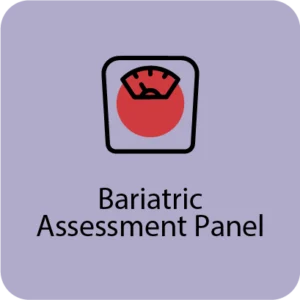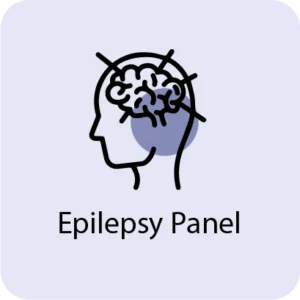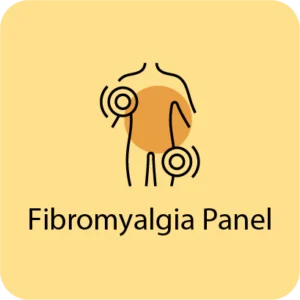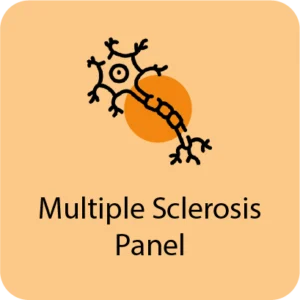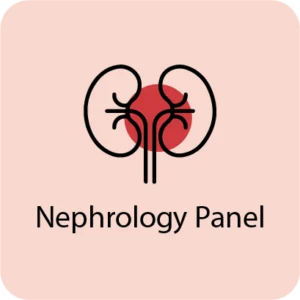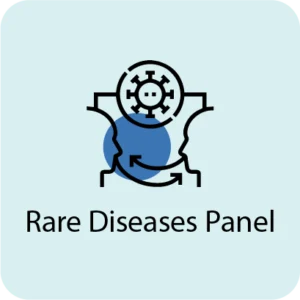Pancreas Cancer_Panel
Pancreatic cancer is known for its aggressive nature and often presents significant challenges in diagnosis and treatment. Lifecode is dedicated to providing comprehensive care, innovative treatments, and unwavering support to individuals affected by pancreatic cancer.
Understanding Pancreatic Cancer:
- Overview: Pancreatic cancer-like condition arises when abnormal cells in the pancreas grow out of control, forming tumors. It is usually referred to as a silent killer because symptoms might not manifest until the disease has reached an advanced stage, making early detection challenging.
- Risk Factors: Several risk factors are known to be well associated with an enhanced risk of developing pancreatic cancer. It includes smoking, obesity, a family history of pancreatic cancer, chronic pancreatitis, diabetes, and certain genetic syndromes.
Lifecode’s Approach to Pancreatic Cancer:
- Early Detection and Diagnosis: It emphasizes the importance of early detection and diagnosis of pancreatic cancer through comprehensive screening programs. It includes imaging studies (like CT scans and MRI), and specialized diagnostic tests (such as endoscopic ultrasound and biopsy). Early detection allows for timely intervention and improved treatment outcomes.
- Multidisciplinary Treatment: The team of oncologists, radiologists, surgeons, and other specialists collaborate closely to develop individualized treatment plans tailored to each patient’s specific needs and circumstances. Treatment options may include surgery, chemotherapy, radiation therapy, targeted therapy, immunotherapy, or a combination of these modalities.
- Precision Medicine: The Healthcare utilizes precision medicine approaches. It includes molecular profiling and genetic testing, to identify specific genetic alterations or biomarkers that may inform treatment decisions and predict response to therapy. This personalized approach allows for more targeted and effective treatments with fewer side effects.
- Clinical Trials: participates in clinical trials and research initiatives to advance the understanding and treatment of pancreatic cancer. Clinical trials offer patients access to novel treatments and therapies not yet widely available, providing hope for improved outcomes and new avenues for treatment.
Why Choose Lifecode for Pancreatic Cancer Care:
- Expertise and Experience: The oncologists and multidisciplinary team are highly experienced in diagnosing and treating pancreatic cancer. With specialized training and expertise in oncology, our team delivers comprehensive, compassionate care to patients affected by this challenging disease.
- Comprehensive Care: The comprehensive care for pancreatic cancer, from diagnosis and treatment to supportive care and survivorship programs. Our integrated approach ensures that patients receive holistic care and support throughout their cancer journey.
- State-of-the-Art Facilities: It is equipped with state-of-the-art facilities and advanced technology, including diagnostic imaging, surgical suites, and infusion centers. It helps in providing the highest standard of care for patients with pancreatic cancer.
- Patient-Centered Care: Lifecode is committed to providing patient-centered care with a focus on compassion, communication, and collaboration. We strive to involve patients in their care decisions, address their concerns, and support them and their families throughout their cancer journey.
Getting Pancreatic Cancer Diagnosed And Treated As Soon As Possible:
- Early Detection Improves Prognosis: The issue is usually diagnosed at an advanced stage when it has already spread to other organs. This shall make it more challenging to treat. Early detection through screening or recognizing symptoms can lead to earlier intervention and potentially better treatment outcomes.
- Rapid Disease Progression: Pancreatic cancer tends to progress rapidly, with symptoms often becoming apparent only in the later stages of the disease. Delaying some of the diagnosis and treatment can allow the cancer to advance further, making it more difficult to manage and reducing the chances of successful treatment.
- Increased Treatment Options: Early diagnosis might offer a wider range of treatment options, including potentially curative surgical interventions. As the disease progresses, treatment options may become more limited, and the goal of treatment. it might be a shift towards managing symptoms and improving quality of life.
- Improved Quality of Life: Prompt diagnosis and treatment can help in alleviating some of the symptoms, manage complications, and improve the overall quality of life for individuals with pancreatic cancer. Early intervention may also reduce the need for aggressive treatments and invasive procedures that can impact quality of life.
- Emotional and Psychological Well-being: The uncertainty and anxiety associated with an undiagnosed or untreated medical condition can take a significant toll on emotional and psychological well-being. Getting a prompt diagnosis and initiating treatment can provide reassurance and support emotional coping and resilience.
Lifecode’s Oncology department is dedicated to providing comprehensive, compassionate care to individuals affected by pancreatic cancer. Through early detection, personalized treatment, and ongoing support, we strive to improve outcomes and quality of life for patients battling this challenging disease. Contact Lifecode today to learn more about our pancreatic cancer services and how we can support you or your loved one on the journey to healing and hope.
| Categories | Conditions Observed |
|---|---|
| Content Yet to Receive | Content Yet to Receive |
What Does The Pancreas Cancer Panel Assess?
The Pancreas Cancer Panel evaluates genetic markers, biomarkers, and other factors associated with pancreatic cancer risk, progression, and treatment response, providing insights into the disease’s molecular profile.
How Does The Panel Aid In Diagnosing Pancreatic Cancer?
Utilizing advanced genetic testing techniques, the panel analyzes specific genetic variants and biomarkers linked to pancreatic cancer, facilitating early detection, accurate diagnosis, and personalized treatment strategies.
Who Should Consider Undergoing The Pancreas Cancer Panel?
Individuals with a family history of pancreatic cancer, those experiencing symptoms such as abdominal pain, jaundice, or unexplained weight loss, and individuals seeking to assess their risk for pancreatic cancer can benefit from this panel.
What Insights Does The Panel Offer Into Pancreatic Cancer?
The panel provides valuable information about an individual’s genetic predisposition to pancreatic cancer, tumor aggressiveness, potential treatment response, and prognosis, guiding personalized management approaches for better outcomes.
Can The Pancreas Cancer Panel Predict Treatment Outcomes?
While not definitive, the panel’s analysis of genetic markers and biomarkers can provide valuable prognostic information, helping to anticipate treatment response and tailor therapeutic strategies for improved patient outcomes.










